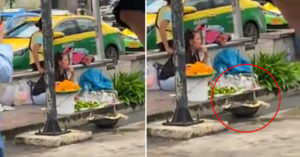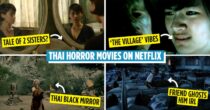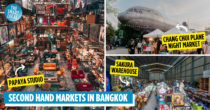Led to crackdown
On Thursday, Thai PM Prayut Chan-o-cha passed an ‘extreme’ emergency decree in the Bangkok area at around 4am following the pro-democracy protest last night after protestors were accused of “affecting” a royal motorcade.
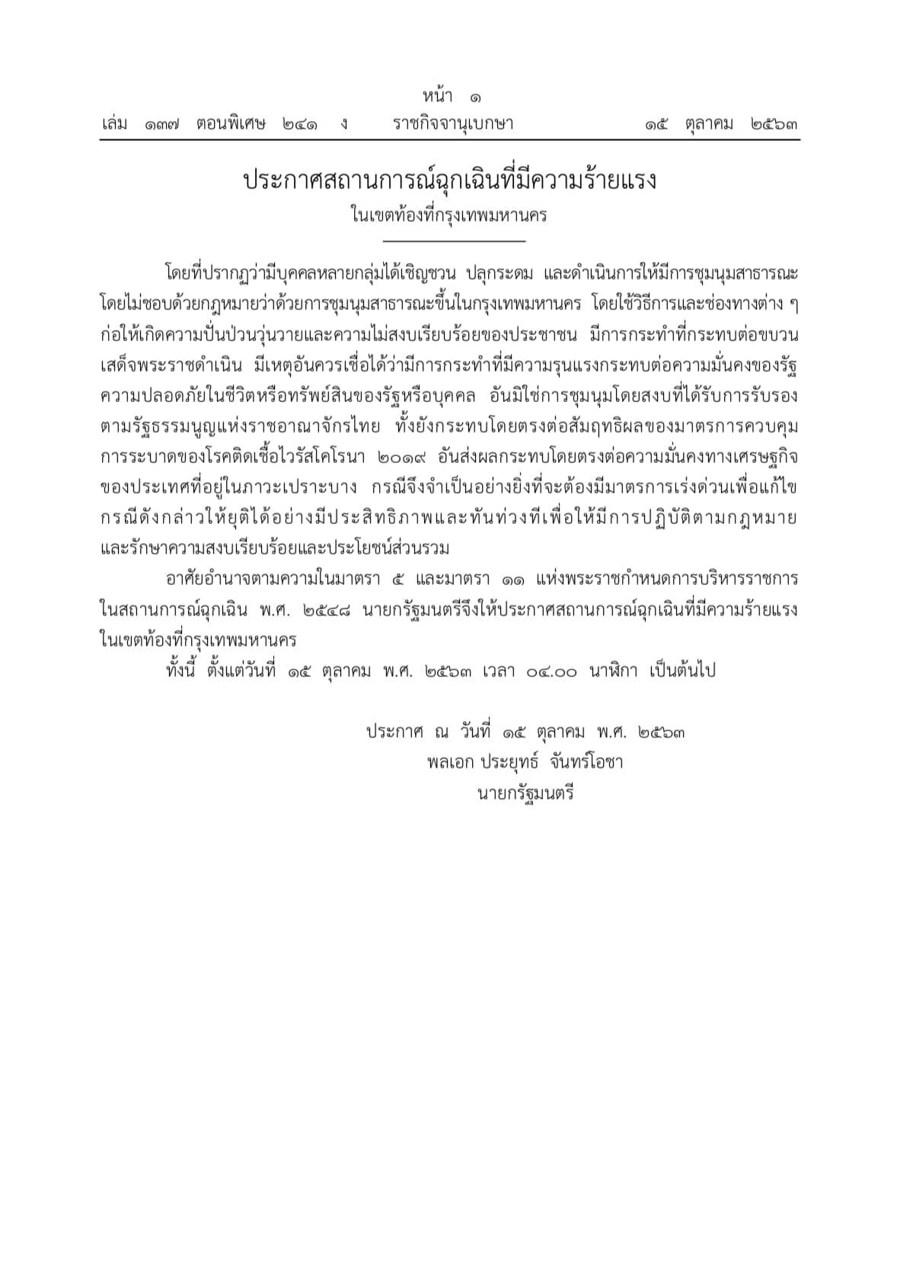
The protest was led by political organisations, namely Free YOUTH and United Front of Thammasat and Demonstration – who are mostly young people, demanding the change of the constitution and the reform of the monarchy.

Image credit: Reuters
Around 30 minutes after the act was announced, a troop of riot-control police officers with batons and shields broke off the remaining protesters, who were mostly from other provinces, in front of the parliament.

Image credit: EPA
A handful of protesters were captured, as well as the main speakers, including human rights lawyer Arnon Nampa, 36, and Parit Chiwarak, 22.
Accused of blocking royal motorcade
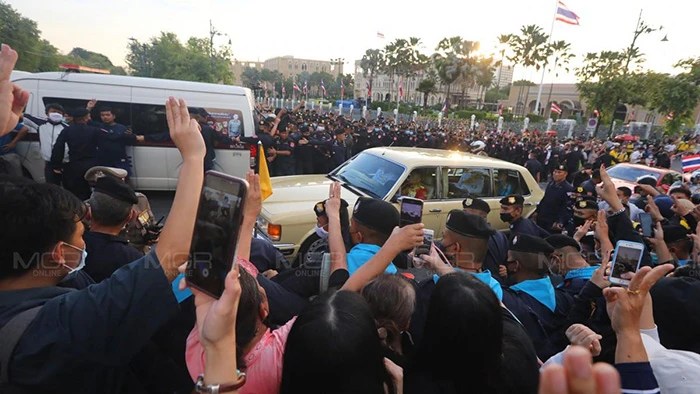
Image credit: MGR
The main reason why the decree was implemented was that the protesters obscured the royal motorcade, which had Queen Suthida and her step-son Prince Dipangkorn Rasmijoti in it, in the late afternoon of 14th October 2020.
As their vehicle passed the protesters, they were reportedly met with loud shouts from protestors, including phrases like “Get out!” and “My taxes!”, along with some profanities.
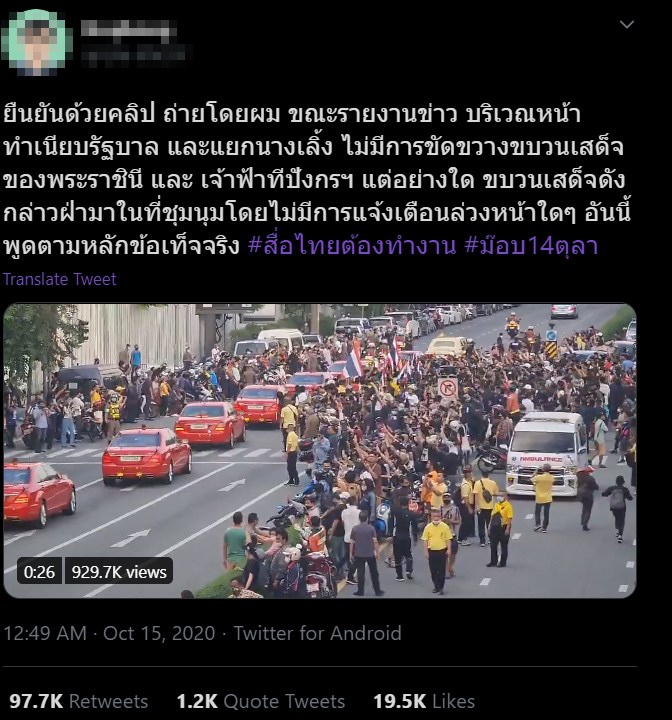
However, a Twitter user posted aerial footage of the incident to show that no one was blocking the royal motorcade’s path as the police lined up to protect it. This sparked arguments among netizens who were against the decree.
Many also questioned why the police had allowed the motorcade to come this way knowing that there was a crowd.
Rules according to the decree

Image credit: Reuters
According to the act, this is the list of what you’re not allowed to do:
- Gatherings of more than 5 people
- Spreading or sharing news that encourages fear (This may include criticising the government as well as promoting the next gathering)
- Passing prohibited areas
- Using buildings or venues the state has prohibited
And this is the list of what the authorities are allowed to do:
- Arrest and capture a suspect for at least 7 days (but not over 30 days)
- Call anyone in for information
- Seize devices and belongings
- A full power to destroy or enter any properties or objects
- Take arbitrary to announce what we can’t or can do
Despite all these rules, many young people said online that they will continue to attend protests.
This particular emergency decree has been implemented before during times of major protests, such as The Red Shirts movement in 2010 and PDRC in 2013.
Featured images adapted from: Urban Creature, Reuters
Enjoying The Smart Local Thailand? Follow us on Facebook and Instagram for more stories like this
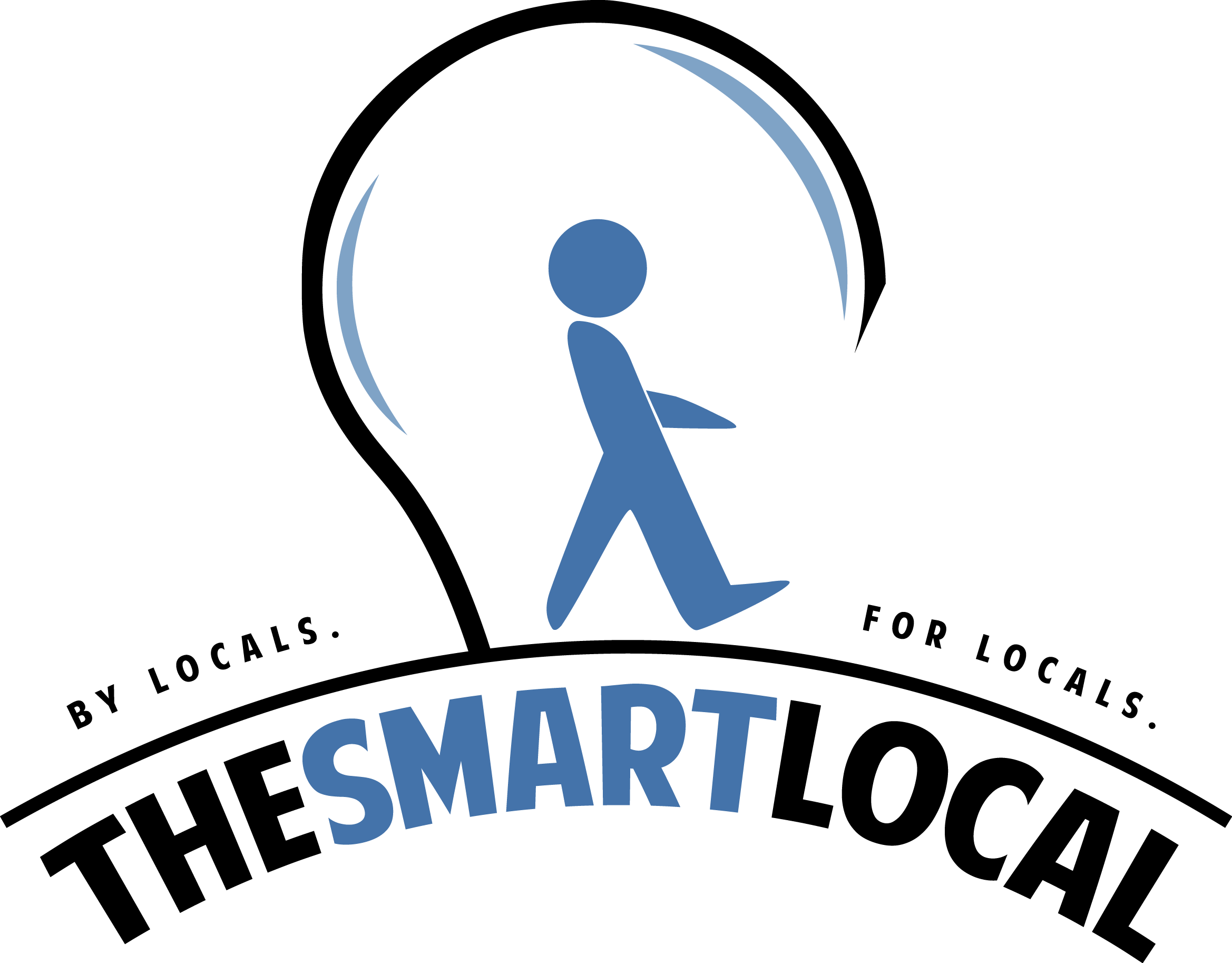
Drop us your email so you won't miss the latest news.

